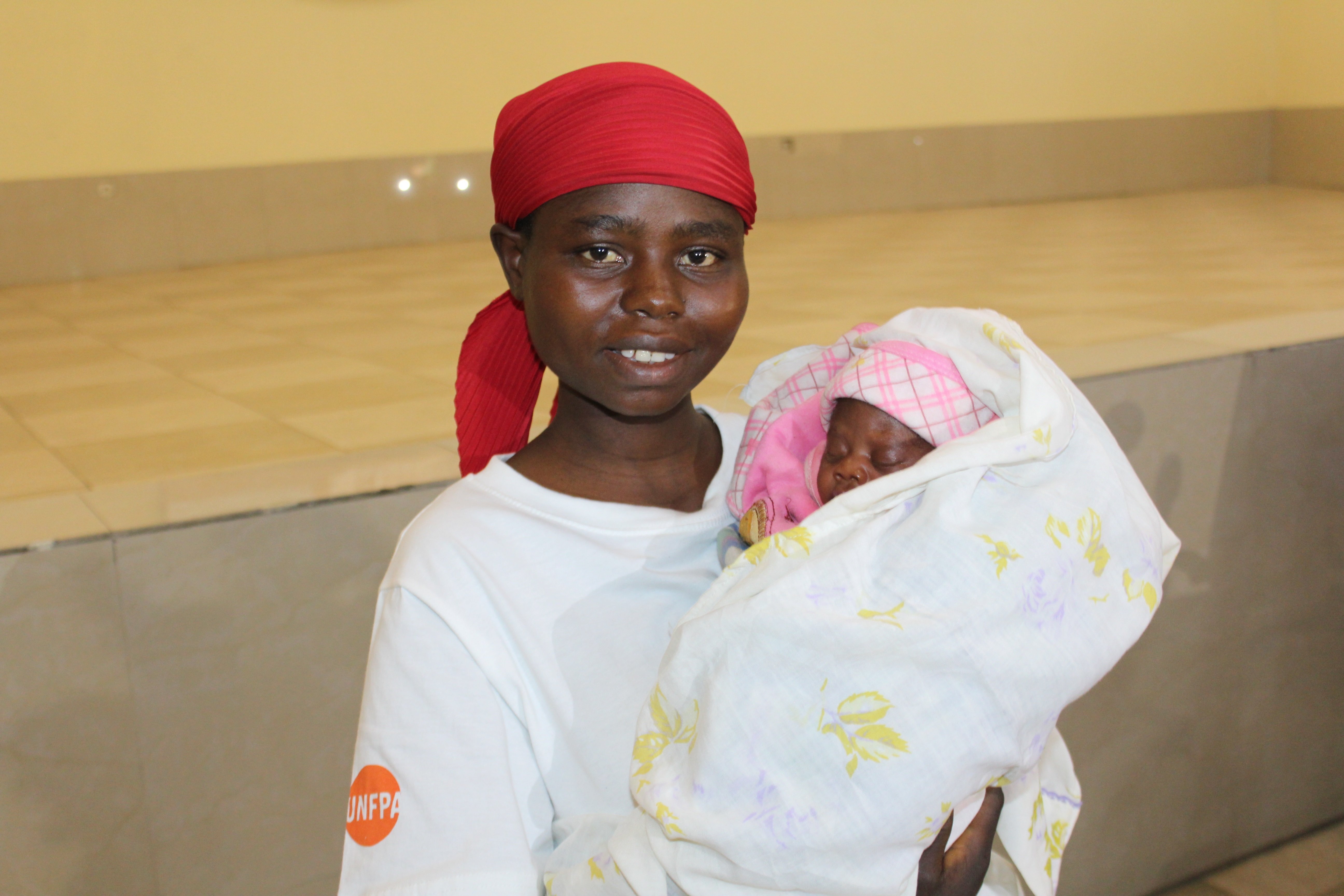In order to deliver a world where every pregnancy is wanted, every childbirth is safe and every young person's potential is fulfilled, UNFPA works in synergy with other partners to achieve this goal. Among these partners there are also other UN Agencies. With these, UNFPA contributes to the decline of infant mortality in Burundi and provide emergency reproductive health care.
Trough that synergy, UNFPA and UNHCR are working together to provide emergency reproductive health care (including emergency response to GBV survivors) to women and girls among returnees, refugees in camps and people affected by natural disasters. Between 2017 and 2018, the following results were obtained:

• 5,775 women and girls of childbearing age (12-49 years) benefited Dignity Kits between January 2017 and October 2018. A 15-year-old girl testifies: “I had my first periods while we were in the camp, I was ashamed and I decided not to tell anyone. The next day, the blood was increasing, I finally told my mother. She took one of her loincloths that were used to carry my little sister, she tore it in small pieces and showed me how to fold and use them. She recommended that I wash them afterwards and keep them for the next cycle. Something that was not easy while we did not have soap all the time. With the support, we have just received from UNFPA, I hope that I will easily manage the next cycle”. This testimony was collected at the Gitara-Makamba transit center, repatriation convoy of Sept, 2017

• 251 survivors of rape reported within 72 hours after incident, supported by health center in refugee camps and medical facilities supported by UNFPA through humanitarian funds.
• 616 obstetric complications managed in 4 camps of Congolese refugees between 2017 and September 2018. • 1,550 deliveries attended by qualified health providers in the 4 camps of Congolese refugees between 2017 and 2018.
• To increase quality services at the refugee camp health facilities, 4 health facilities in the refugee’s camps (Musasa, Kinama, Bwagiriza and Kavumu) received SR kits consisting of 6A and 6B kits (Clinical Delivery-Reusable Assist Kit and Delivery Aid-Drugs / Equipment Kit) and referral hospitals. (Ngozi, Gashoho, Ruyigi and Cankuzo) for kits 8 (miscarriage support); kit 9 (vaginal and cervical tear suture), kit 10 (vacuum cup), kit 11A (Care kit level A-reusable material) and Kit 11 B (Kit care level B drugs / disposable equipment)
UNFPA together with WHO and WFP decline maternal mortality ratio
Burundi is one of the African countries with a slow decline in maternal mortality. In fact, the results of the Demographic and Health Survey (DHS) found that the maternal mortality ratio was estimated at 500 maternal deaths per 100,000 live births in 2010. This high maternal mortality can be explained in particular by: (i ) the inadequacy of the health facilities providing emergency obstetric and neonatal care "SONU"; (ii) the low use of family planning services, particularly due to the lack of integration of immediate and post-abortion family planning, as well as rumors about modern contraception, even though the Synthetic Fertility Index saw a slight decrease (6.4 in 2010 to 5.5 in 2016). The prevalence rate of modern contraceptive methods was estimated at 23% in 2016 against 18% in 2010 (DHS results).
It is for this reason that UNFPA has initiated a collaboration with the WHO to initiate the training of providers (the whole team of health facilities) according to the "mentoring" approach to improve the quality of maternal care by taking care of obstetric complications on time but also by offering Family Planning services to mothers after giving birth. Because of that, many women like Virginie NDUWIMANA are saved while giving birth. She testifies: "When it came time to give birth, I almost lost my life following a placental retention at the health center where I was. I was directly transferred to the referral hospital and without the intervention of a competent midwife, I would be dead today because of a haemorrhage. Thank God, today I am alive to raise my baby”.

UNFPA also worked with WFP to sensitize members of women's agricultural groups on the link between the use of family planning and agricultural production and development, as well as the well-being of the population. Participants bring messages received in their respective communities Thus, synergy and complementarity with other UN agencies contributes to further increase the number of additional users of family planning from 101,616 in 2016 to 173,692 in 2018.
By Queen BM NYENITEKA

